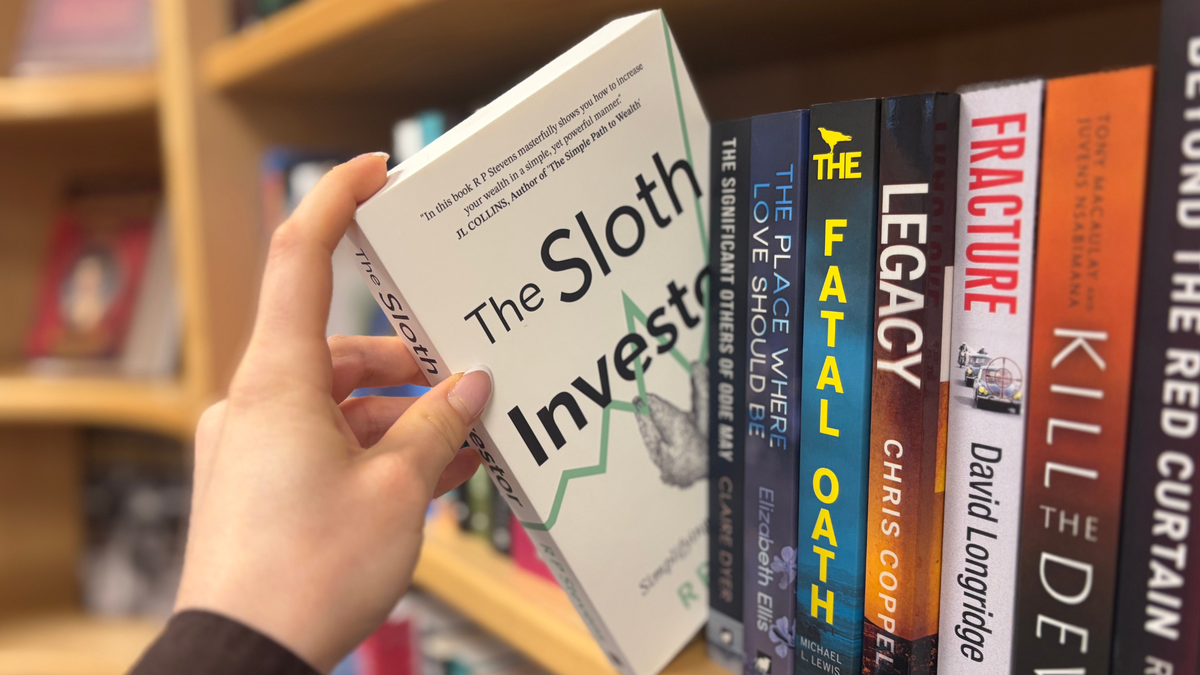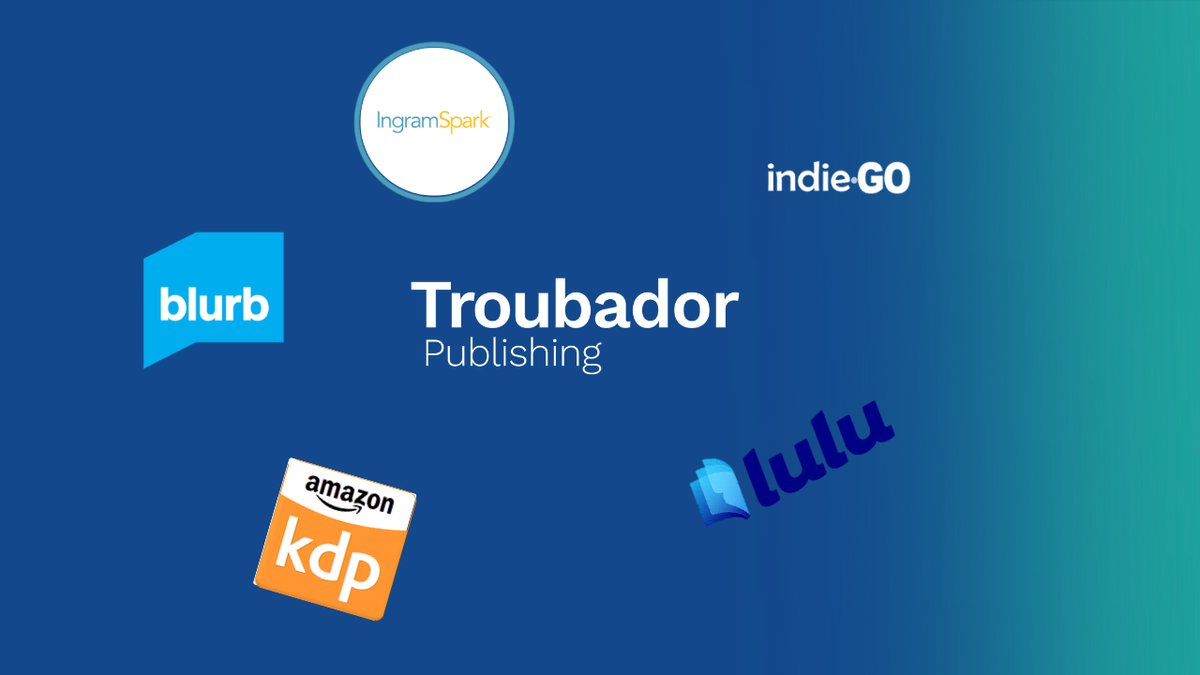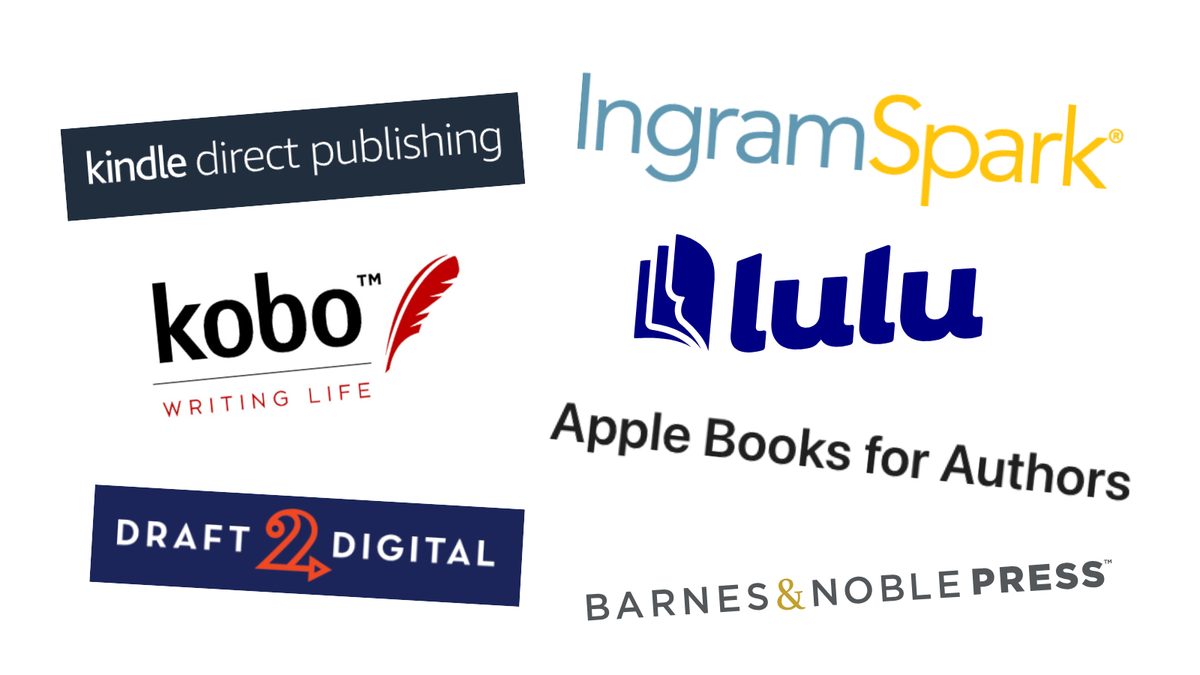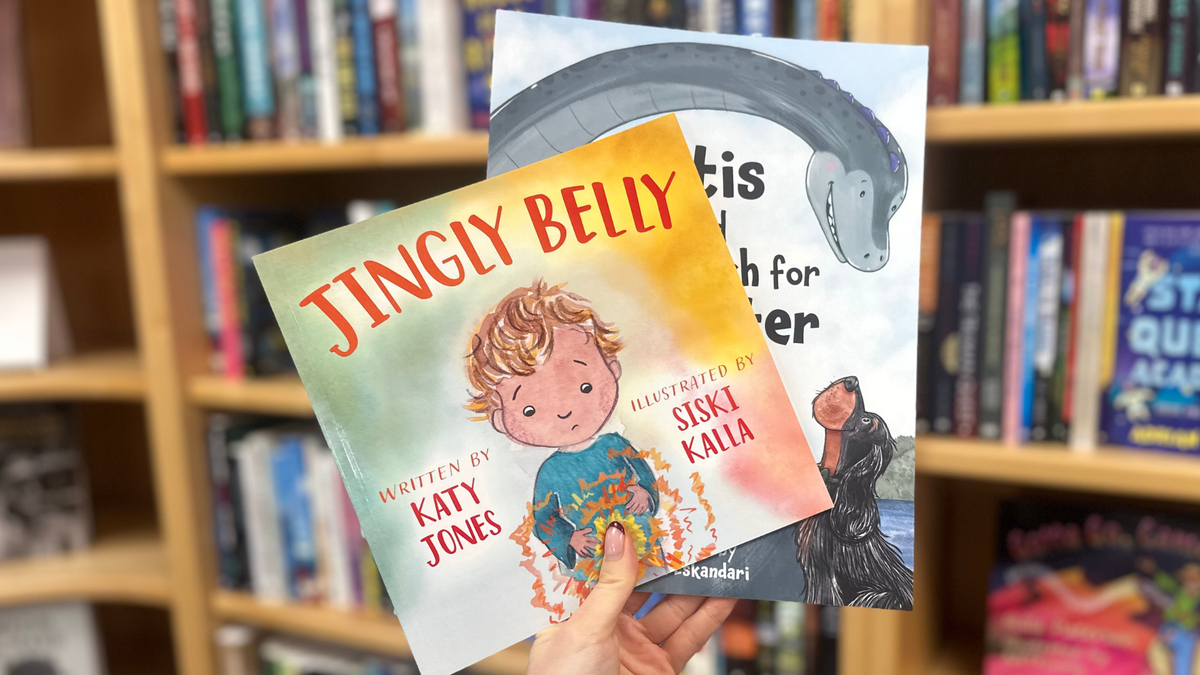
12th June, 2024
12 min read
What are the 7 Biggest Challenges for Authors Self-Publishing a Book?
Written by:
Alex Thompson
There has never been a better time to be a self-published author. The options available to authors for how to get their work out into the market are now numerous, with pros and cons linked to every approach. Authors can choose from various routes to publication, each offering unique advantages in terms of distribution, royalties, and reach.
However, while there have never been more ways to self-publish your book than there are today, authors will still face many challenges on their road to publishing success. The democratisation of publishing means that there are more books published every year than ever before making competition for reader attention fierce. Standing out in a crowded marketplace requires strategic planning, marketing savvy, and continuous effort. From ensuring high-quality production values to mastering the intricacies of digital marketing, self-published authors must wear many hats.
In this article, I’ll explore the 7 main challenges authors face when self-publishing a book and outline how you can navigate and overcome them successfully. The challenges I’ll be covering are:
- Quality Control: Ensuring Professional Standards
- Marketing and Promotion: Getting Your Book Noticed
- Distribution Challenges: Reaching Your Audience
- Financial Investment: The Cost of Self-Publishing
- Time Management: Balancing Writing with Other Responsibilities
- Building Credibility: Establishing Yourself as a Serious Author
- Legal and Copyright Issues: Protecting Your Work
Whether you're just starting your self-publishing journey or looking to improve your current strategies, understanding these obstacles and learning how to tackle them effectively will be crucial to your success.
1. Quality Control: Ensuring Professional Standards
If you are reading this article, then you're likely an author. Authors often take immense pride in their writing, sometimes spending years honing and perfecting their manuscripts before bringing them to market. Unfortunately, many authors fail to maintain that same level of quality throughout the publication process. In a market where millions of books are published every year, even those with first-class editing, design, printing, and distribution struggle to stand out. For books lacking in these areas, the task becomes nearly impossible. Ensuring quality at every stage of publishing is crucial.
But how you might ask can an author access all the elements that go into creating a quality book? There are many ways, but the two most common are seeking help from individual freelancers or from a publishing service – both of which have their pros and cons. If an author chooses to work with individual freelancers or organisations on specific aspects of their book, they might spend less money on the production process. However, this approach requires the author to manage several elements themselves, which can be challenging unless they are truly a jack of all trades.
On the flip side, you could engage a full-service provider like Troubador to manage the entire process for you. This approach allows you to work directly with a dedicated team throughout the publication journey, ensuring that every detail is handled professionally – we believe that the quality of your experience is just as important as the quality of your finished book. With full-service self-publishing using a publisher like us, you don't have to worry about the aspects you aren't familiar with; you simply communicate your vision, and the team executes it consulting you every step of the way. However, this convenience comes at a cost. You can find examples of our pricing on our pricing page, but it's important to determine if a full-service provider fits your needs and budget.
Of course, bear in mind that if you end up using multiple freelancers for multiple elements of your book then those costs too coil add up, meaning a full-service provider may end up actually costing less! Do your research and be sure of the budget you have available and the costs you expect to incur before you commit to a publishing route.
Whatever route to publication you choose, ensure that quality is present at every stage. Without it, you will not do your book justice and may end up turning away readers instead of attracting them. Prioritise quality to give your book the best chance of success in a competitive market.
2. Marketing and Promotion: Getting Your Book Noticed
As I’ve mentioned, millions of books are published worldwide every year, with that number increasing significantly each year. This surge in published books presents a new challenge for authors: how can they ensure their book stands out in such a crowded market? In today's competitive landscape, simply uploading a book to a digital platform and waiting for sales to roll in is not enough. Authors need to engage in proactive marketing and promotion to get their books noticed.
The Troubador team speaks to hundreds of authors each month, many of whom are apprehensive or uninterested in marketing their books. For those not aiming for commercial success — such as individuals publishing a memoir for family distribution only — marketing may not be a priority. However, for authors who want to sell copies of their books, effective marketing is crucial. A strategic marketing push is the best way to get your book noticed and purchased.
So, what do marketing and promotion entail for authors? First, consider the obvious strategies: social media, author websites, and event attendance. Social media platforms like Facebook, Instagram, X (formerly Twitter), and TikTok have become essential for book promotion. While these platforms can be daunting for those unfamiliar with them, engaging with readers on social media is a free and personal way to capture their attention. Read my guide on building your brand on social media to get some further advice and guidance on this topic.
Websites are also increasingly popular among authors. They serve as a platform to introduce yourself, showcase your content, and promote your books. Additionally, websites can include direct links for readers to purchase your books. Troubador builds hundreds of websites for authors every year for these reasons.
Event attendance is another valuable tactic. Authors should look for opportunities to exhibit at events where they can promote and sell their books. Meeting readers face-to-face is a great way to create connections and expand your audience.
Beyond these obvious tactics, there are less common but equally important marketing strategies, such as trade marketing representation and publicity. Trade marketing is often overlooked but is essential for getting books noticed and purchased by retailers, wholesalers, bookshops, and consumers. This involves sharing advanced information sheets with bookshops, actively selling your book to these shops, and employing other methods to attract trade attention.
Publicity focuses on gaining media coverage by reaching out to relevant media outlets to generate attention and coverage for your book. While some authors may feel comfortable handling these promotional tactics themselves, leveraging the expertise of a publisher like Troubador, which has established media contacts and sales representatives, can significantly enhance the reach and impact of your book.
Regardless of how an author chooses to approach marketing, it is crucial to execute these tactics effectively. Whether with professional help or using your own skills, a well-executed marketing strategy is essential for success.
3. Distribution Challenges: Reaching Your Audience
Book distribution is complex, but it is crucial for authors to understand the opportunities and limitations associated with their chosen distribution routes. While it's true that there have never been more ways to publish a book, not all methods grant access to every distribution channel, which can affect a book's availability and discoverability.
Take, for instance, a book published exclusively through Amazon Kindle Direct Publishing (KDP). While Amazon’s global reach ensures the book is accessible to a broad audience, this platform may not meet the needs of authors seeking wider distribution. For example, if an author wants their book to be stocked in physical bookshops, they need a publisher like Troubador, which can distribute the book data to wholesalers, retailers and bookshops and handle direct distribution from our warehouse. Additionally, authors must consider that bookshops are unlikely to stock Print on Demand (POD) titles, so opting for a short print run is necessary if you want your book to be on their shelves.
On the other hand, if an author’s focus is solely on the digital market and they prefer to manage distribution themselves, publishing through Amazon might be the best option due to its simplicity and ease of use for individual authors. We work with authors who have diverse objectives, ranging from wanting their book available through as many channels as possible to limiting its availability to our online bookshop to maximise royalties. There is no one-size-fits-all answer to which distribution channel is best; it depends on the author's specific goals. What is crucial, however, is that authors must ensure that their chosen channels align with their publishing objectives before publication because once the book is out in the market, making changes can be challenging. By carefully considering their distribution strategy and understanding the nuances of each channel, authors can make informed decisions that enhance their book’s reach and success.
4. Financial Investment: The Cost of Self-Publishing
It is rare for an author to incur no costs throughout their publishing journey, be that cash or time. Whether aiming to minimise expenses or investing substantial capital to enhance their project's chances of success, authors need to be prepared and understand the potential financial outlay required to publish their book.
For those looking to keep costs low, it is theoretically now possible to handle all aspects of the project independently. Authors can upload their manuscripts directly to platforms like Amazon or similar platforms for free alongside a cover they have created using an ISBN provided by them, but this process is often complicated and time-consuming. Additionally, while initial publishing on platforms like Amazon may be free, significant royalties are taken from each sale, which should be factored into the overall cost analysis and the author conducts pre-publication.
Authors willing to spend a bit more to access a higher quality product might opt to collaborate with freelancers through platforms like Reedsy or organisations like Indie-Go for specific parts of their projects. For example, they might hire a professional to design the cover and another one to perform a copy edit while handling typesetting, ebook creation, and sourcing printing themselves. This approach can be cost-effective, although it comes with limitations, such as restricted distribution within the book trade, the time required for the author to manage various tasks and the potential for a lower-quality final product.
For authors with the resources to invest more significantly, working with a full-service self-publisher like Troubador is an excellent option. We provide professional assistance with every aspect of the publishing process and pride ourselves in both a finished product of the highest quality and an author publishing experience to match. You can review our pricing examples for an idea of expected costs, but keep in mind that each author receives a bespoke quote tailored to their objectives. While this route is more expensive than publishing through Amazon alone, the benefits of professional support and a higher-quality end product can justify the investment.
Regardless of the approach, it is crucial for authors to meticulously track their spending and understand precisely what they are paying for at each step of the process – if it was me, I’d have a detailed spreadsheet to capture every element of my project! By being well-informed and financially prepared, authors can make strategic decisions that align with their publishing goals and budget, ensuring a smoother and more successful publishing journey.
5. Time Management: Balancing Writing with Other Responsibilities
For a self-published author, managing time effectively is one of the biggest challenges you'll face. You've already invested countless hours in writing your book but be prepared to invest significantly more time as you move through the publishing process.
One option is to seek assistance from professionals who can handle the intricate details of publishing your work. While this will increase the monetary cost of your project, it can significantly reduce the time you need to spend on it yourself and give you the reassurance that the job is being done well. Having a dedicated team manage the entire process — from editing to cover design to distribution — allows you to focus on providing input and making key decisions, freeing you from day-to-day tasks.
Alternatively, if you choose to handle every stage of the project yourself, be prepared for a time-consuming and sometimes frustrating journey. This DIY approach is perfectly valid and is the right choice for many authors, but it's essential to understand the time commitment involved. Before starting, plan your schedule around the tasks you need to complete. Allocate specific times in your daily routine for formatting your manuscript, designing your cover, formatting the files, and uploading them to your chosen platform. Once your book is published, dedicate regular time each week to marketing and promoting your title.
By planning ahead and understanding the time demands of your chosen route, you'll be better equipped to manage your self-publishing journey effectively. Whether you enlist professional help or go it alone, being mindful of your time investment is crucial to achieving your publishing goals and be sure you are ready to commit as much time as is required to do your book justice.
6. Building Credibility: Establishing Yourself as a Serious Author
Some authors reading this article may have only recently discovered the world of self-publishing. If so, you may have encountered stigma or bias along the way about self-publishing in general, and perhaps you have even come across my least favourite phrase: vanity publishing. If so, be assured that the market is changing very quickly indeed.
Troubador was incorporated by my father, Jeremy, in 1996, and at that point in time self-publishing was a whole new way to publish a book. There was a serious stigma around it for the perceived lack of quality that you get from traditionally published books and the fact that authors were funding publication themselves. However, due to traditional publishers now taking fewer risks than ever, making traditional publishing contracts more competitive than ever, self-publishing has gone from an outlying alternative publishing route to an immensely popular alternative for millions of authors in a very short space of time.
Gone are the days of stigma and dubiousness over self-published books. In fact, now supply books to bookshops across the country, including directly into the Waterstones group, and they have given the value of each shelf space in a bookshop that would not happen unless the industry had turned a corner in terms of quality and publishers like us were helping self-published books hold their own in a crowded marketplace.
For self-published authors looking for success, make sure you are building your own credibility as you go. Obtain as many reviews as possible, either through your own advertisement or using marketing services that feature your book on platforms like NetGalley to encourage more readers to explore your work.
7. Legal and Copyright Issues: Protecting Your Work
When self-publishing a book, understanding legal and copyright issues is crucial for protecting your intellectual property. Copyright laws grant you, the author, exclusive rights to your work, ensuring that you control its reproduction, distribution, and adaptation. Without proper copyright protection, your book is vulnerable to unauthorised use, which can undermine your creative and financial investment.
You also need to ensure that you maintain the rights to your book. Any publisher worth their salt should not require that you sign the rights to your work over to them but, if that does happen, take a step back and think about whether that is something you are comfortable with. Understanding contracts is equally important. Whether you’re working with editors, designers, or publishers, ensure that agreements in any contract you are asked to sign clearly outline responsibilities for both parties.
As well as any contract that you enter into with a publisher or organisation, ensure that your work is copyright-free too. Any images you have used, maps you have inserted, lyrics you have quoted or phrases you have woven into your manuscript may be under copyright of some kind, so make sure that you are protected ahead of publication.
Embrace the challenges
Self-publishing has opened a world of opportunities for authors, making it an exciting time to bring your work to the market. With numerous publishing options available, each with its own advantages and challenges, authors can tailor their approach to best suit their goals. However, navigating the self-publishing landscape requires careful planning and strategic execution. From maintaining high-quality production standards to effectively marketing your book, managing distribution channels, handling financial investments, and protecting your intellectual property, there are many facets to consider.
By understanding and addressing the key challenges outlined in this article — quality control, marketing and promotion, distribution, financial investment, time management, building credibility, and legal issues — authors can better position themselves for publishing success. Whether you choose to seek professional help or take on the entire process independently, being informed and prepared will empower you to make the best decisions for your book and reduce the challenges you might encounter.















